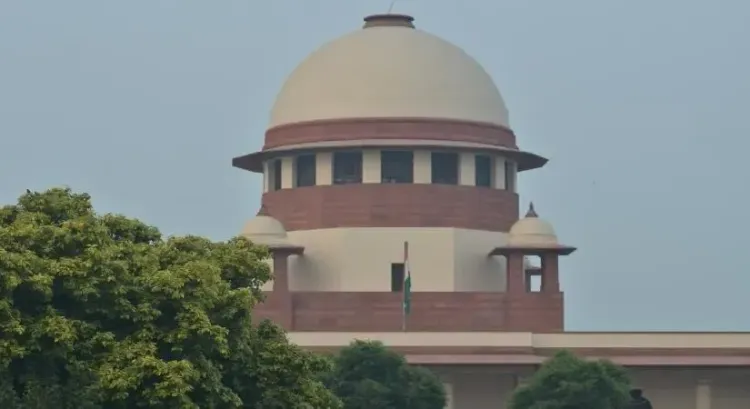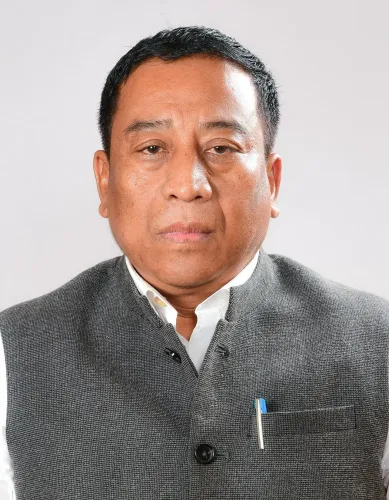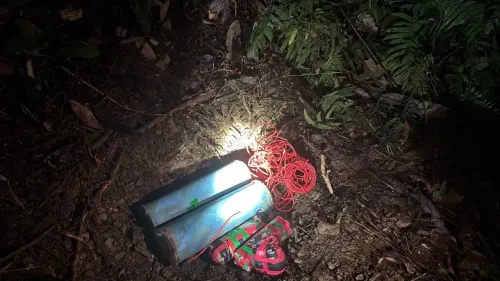Will the SC Hear Punjab's Challenge Against Governor's Bill Referral on Monday?

Synopsis
Key Takeaways
- The Supreme Court will examine the Punjab government's challenge regarding the Governor's referral of two bills.
- Key constitutional questions about legislative authority and governance are at stake.
- The Sikh Gurudwaras Bill promotes cultural accessibility through live broadcasts.
- The Punjab Police Bill aims to enhance police accountability and independence.
- The case references critical precedents regarding the President's role in legislative processes.
New Delhi, Aug 17 (NationPress) The Supreme Court is scheduled to deliberate on a writ petition submitted by the Punjab government on Monday. This petition contests the Governor’s choice to refer the Sikh Gurudwaras (Amendment) Bill, 2023, and the Punjab Police (Amendment) Bill, 2023, to the President for her review.
According to the causelist available on the apex court's website, a bench comprising Chief Justice of India (CJI) B.R. Gavai and Justices K. Vinod Chandran and N.V. Anjaria will address the petition on August 18. The plea challenges the President's “simpliciter inaction” concerning the two bills, which were neither granted nor denied assent.
The petition formulates two crucial questions of “constitutional significance”: firstly, whether the Governor can independently refer the bills to the President against the Punjab government's advice; and secondly, how the President is obligated to act once a bill is reserved for her consideration by a Governor.
The plea, represented by advocate Nupur Kumar, argues that both bills were sent to the President “in violation of the aid and advice of the State Council of Ministers, and without any constitutional trigger or extraordinary breakdown of democratic governance.”
It asserts that both bills either belong to the State List or, if they are part of the Concurrent List, do not contradict any laws established by the Union Parliament.
“They also do not engage any constitutional provisions that would (a) necessitate Presidential assent as a prerequisite for their enactment; (b) require reference due to repugnancy or inconsistency with central law; or (c) present exceptional circumstances threatening constitutional democracy justifying a deviation from ministerial aid and advice,” the petition states.
Furthermore, the plea references the recent ruling in the State of Tamil Nadu v. The Governor of Tamil Nadu case, where the Supreme Court firmly established that “there is no ‘pocket veto’ or ‘absolute veto’ available to the President in fulfilling her duties under Article 201” and that decisions on reserved bills must be made “within a three-month timeframe.”
The Sikh Gurudwaras (Amendment) Bill mandates the complimentary live telecast of Gurbani from the Golden Temple, while the Punjab Police (Amendment) Bill aims to create an independent mechanism for appointing the Director General of Police (DGP). Both bills were passed by the Assembly in 2023.
While the Sikh Gurudwaras Bill has been pending for over 17 months and the Punjab Police Bill for more than 12 months, the petition highlights that “no decision granting assent or providing reasons for withholding it has been communicated to the petitioner-state.”
Referring to the directives issued in the Tamil Nadu Bills case, the Punjab government’s plea argues that such inaction “renders the constitutional framework under Article 201 illusory, and amounts to an abdication of constitutional responsibility.”
A 5-judge Bench of the Supreme Court is already addressing a Presidential reference under Article 143 of the Constitution, seeking the court’s opinion on whether timelines can be enforced on Governors regarding their actions on Bills in the absence of a constitutionally mandated time limit.
Following the apex court’s decision in the Tamil Nadu Bills case, President Droupadi Murmu, in May of this year, requested the apex court to provide its opinion on the constitutional options available to a Governor when presented with a Bill under Article 200 of the Constitution.









